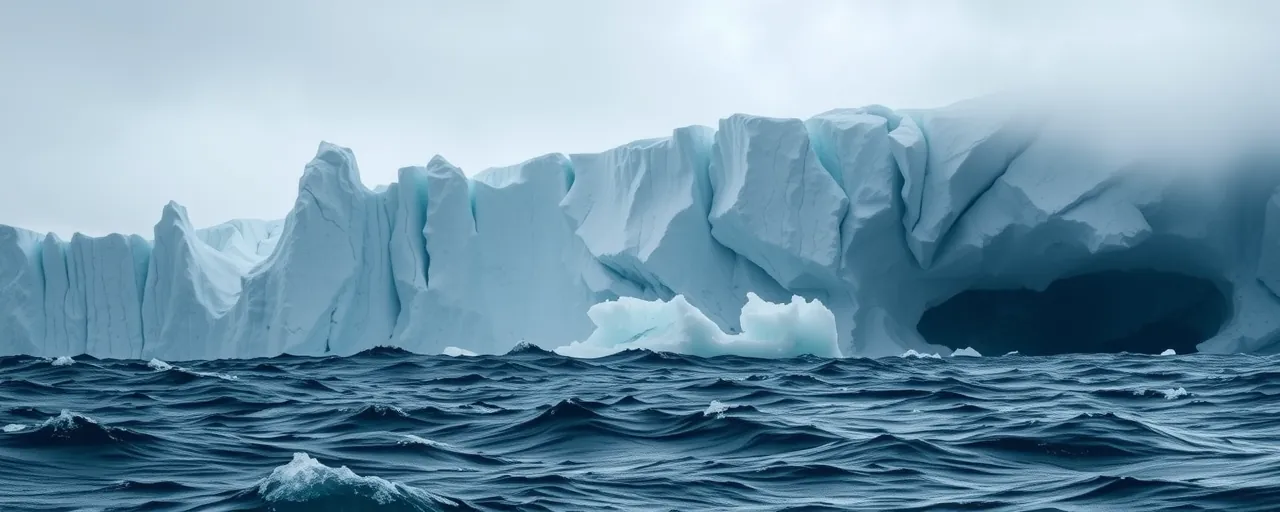A Mirage in the Ice
A new study from Tongji University, amplified by Chamath Palihapitiya on social media, reveals Antarctica’s ice sheet gained mass from 2021 to 2023. The finding sparked excitement, as if the planet had dodged a bullet. But this is no cause for celebration. The gain is a temporary anomaly in a relentless pattern of global ice loss and warming that we cannot ignore.
Heavy snowfall in East Antarctica drove this surge, according to Science China Earth Sciences. Some seized the news to argue climate fears are exaggerated. Their optimism is misplaced. NASA’s GRACE and GRACE-FO satellites show this gain offsets a mere 0.30 millimeters of sea-level rise per year. Meanwhile, Greenland and West Antarctica lose ice at a staggering pace, pushing seas higher.
This moment of growth does not signal a reversal. Decades of data confirm a steady decline in global ice, with sea levels rising as polar regions thaw. Those heralding this anomaly overlook the broader crisis. Coastal cities and low-lying nations face growing flood risks, and a brief uptick in Antarctic ice does nothing to change that reality.
We cannot afford to misread the signs. The climate crisis demands focus on long-term trends, not short-lived exceptions. This study is a reminder to stay vigilant, not an invitation to relax.
The Bigger Picture Reveals the Truth
The numbers tell a sobering story. From 2002 to 2020, Antarctica shed ice at an accelerating rate, per the IMBIE consortium’s satellite data. The 2021-2023 gain of 108 gigatons per year is notable but pales against prior losses. It resembles a brief rally in a long decline, not a turning point.
Unusual weather fueled East Antarctica’s snowfall, creating this outlier. Yet globally, ice loss dominates. Greenland’s ice sheet shrinks rapidly, West Antarctica’s glaciers falter, and Arctic sea ice hit a record low in September. Antarctic sea ice has also plummeted, with three record lows since 2017. These trends point to a warming planet, not a recovering one.
Some voices highlight this study to dismiss climate risks. They misinterpret the data. The IPCC and NASA confirm global ice loss far exceeds regional gains. A 2015 study suggesting East Antarctic growth was later corrected by GRACE data showing net declines. Today’s finding fits that pattern—a temporary spike, not a refutation of warming.
Focusing on one anomaly distorts the truth. It echoes past efforts, like the 2009 Climategate controversy, to cast doubt on climate science. Such tactics delay action while vulnerable communities face rising seas. We need clarity, not confusion, to address this crisis.
The Human Cost of Inaction
Climate change hits hardest at the human level. Rising seas endanger homes, economies, and cultures. Small island nations risk submersion, while cities like Miami and Dhaka spend billions on flood barriers. These are real threats unfolding today, and Antarctica’s ice gain does not lessen their urgency.
Advocates for climate action, from community organizers to Paris Accord supporters, push for swift emission cuts. The Inflation Reduction Act of 2022 boosted renewables, a vital step. But global emissions must drop 50 percent by 2030 to cap warming at 1.5 degrees Celsius, per IPCC goals. Delays make that target tougher to hit.
Some prioritize economic growth over environmental protection, citing studies like Tongji’s to downplay the crisis. This view ignores the steep costs of inaction—billions in damages from floods, fires, and storms. Science shows cutting emissions now saves money compared to rebuilding later. Betting on short-term gains over long-term stability is a losing strategy.
Global unity is essential. The UNFCCC, Kyoto Protocol, and Paris Accord prove nations can collaborate. Antarctica’s ice surge is a quirk of nature, not a reason to pause. We must advance carbon pricing, renewables, and coastal defenses to build a resilient future.
Our Planet Deserves Better
Antarctica’s ice gain offers a glimmer of reprieve, but the climate crisis rages on. Warming continues, ice melts, and the clock ticks. We cannot let anomalies derail our resolve. Human actions fuel this crisis, and only human commitment can resolve it.
Act on the science. Support policies that slash emissions, fund adaptation, and shield vulnerable communities. Hold leaders accountable for prioritizing people over profits. The fight for our planet’s future is urgent, and we must stay the course, undeterred by fleeting distractions.
